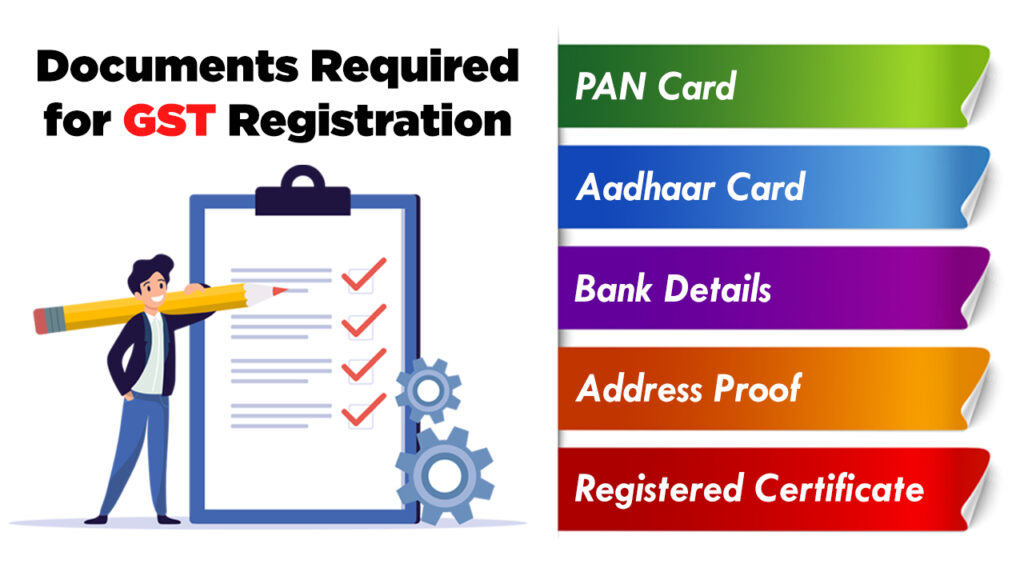Leading Tips for a Smooth Singapore GST Registration Experience
Leading Tips for a Smooth Singapore GST Registration Experience
Blog Article
Optimizing Tax Obligation Performance: Professional Tips on Navigating the GST Enrollment Puzzle for Local Business
Browsing the intricate landscape of Item and Provider Tax Obligation (GST) enrollment can be a labyrinthine task for small services intending to maximize their tax obligation effectiveness. In this discussion, we will discover skilled insights and workable guidance that can equip small services to navigate the GST registration labyrinth effectively and enhance their tax effectiveness.
Eligibility Standards
Qualification requirements for Small company GST Registration incorporate specific requirements that businesses should satisfy to follow tax guidelines. To qualify for GST enrollment, an organization should have a yearly turnover surpassing the limit set by the tax authorities, which differs by country. Furthermore, companies involved in inter-state supply of services or products, or those selling products online, might be required to sign up for GST, irrespective of their turnover. It is important for services to properly establish their eligibility based upon these turnover thresholds to avoid charges for non-compliance. Singapore GST Registration.

Paperwork Demands
The required paperwork commonly consists of evidence of business registration or address, identification and incorporation proofs of the organization owner, photographs, bank account information, and proof of the major place of company. Furthermore, businesses need to supply information of their organization tasks, consisting of the services or goods supplied.
Aside from the mandatory files, services might additionally be required to submit extra info based upon their certain conditions. This could consist of documents connected to collaborations, the authorization of signatures, or any kind of various other pertinent contracts. Keeping all needed documentation arranged and readily obtainable can improve the registration procedure and assistance services abide by the requirements effectively - Singapore GST Registration. Failure to provide the required paperwork may lead to delays and even denial of the GST enrollment application. Careful interest to detail and adherence to the documents guidelines are vital for an effective GST registration procedure for little businesses.
Timing Factors To Consider
Thinking about the important documents requirements have actually been meticulously attended to, the following vital facet for local business starting the GST enrollment procedure is the tactical monitoring of timing considerations. Timing plays an essential duty in GST registration, affecting not just compliance however additionally financial elements of the business. Local business need to carefully prepare the timing of their GST enrollment to make best use of benefits and minimize prospective dangers.

Additionally, companies must straighten the timing of their GST enrollment with their functional preparedness. Ample prep work, such as upgrading audit systems and training team, is vital to seamlessly incorporate GST needs right into daily procedures. By purposefully handling timing considerations, small companies can navigate the GST registration process successfully and maximize their tax efficiency.
Registration Refine Tips
Successfully browsing the GST registration procedure needs small companies to implement positive and critical registration procedure tips. One essential tip is to make sure all required documents are easily available before starting the enrollment procedure. This includes service enrollment records, proof of address, financial institution statements, and recognition proofs of index the organization owners. Validating the accuracy of the details offered is just as important to linked here stop hold-ups or rejections.
In addition, comprehending the thresholds and needs for GST registration based on the particular state or area where the organization operates is necessary. Some states have various turnover thresholds that set off required registration, so being informed regarding these limits can assist organizations plan ahead.
Another useful idea is to take into consideration looking for professional help from accounting professionals or tax obligation professionals that specialize in GST enrollment. Their know-how can enhance the procedure, lower mistakes, and ensure compliance with all regulations.
Compliance Best Practices
Navigating the GST registration procedure efficiently demands not only tactical registration process suggestions but also diligent adherence to compliance ideal techniques to make certain recurring governing placement. Local business must focus on conformity to prevent charges and preserve a good standing with tax obligation authorities. One crucial ideal practice is to maintain exact and thorough records of all purchases. This consists of invoices, invoices, and other financial records that might be required for tax obligation audits or conformity checks. Furthermore, staying educated regarding any adjustments or updates to GST policies is important. Tiny company owners must on a regular basis evaluate federal government guidelines and seek expert guidance if required to ensure they are fulfilling all demands. It is also suggested to submit GST returns in a timely manner to avoid late charges and penalties. By integrating these compliance finest techniques into their procedures, small companies can browse the intricacies of GST enrollment with confidence and efficiency.
Conclusion
Finally, small organizations can navigate the GST registration puzzle by guaranteeing they satisfy qualification standards, collect called for documents, consider timing implications, follow registration process tips, and abide by conformity finest methods. By optimizing tax obligation effectiveness with appropriate GST registration, businesses can improve their monetary management and operations.
Browsing the detailed landscape of Product and Solutions Tax (GST) registration can be a labyrinthine job for tiny services aiming my link to maximize their tax obligation performance.Qualification needs for Small Service GST Registration encompass details standards that services should meet to abide with tax obligation laws. The needed paperwork generally includes evidence of service registration or address, identity and unification proofs of the organization owner, photographs, financial institution account details, and proof of the primary place of service. Furthermore, companies require to supply details of their organization tasks, including the goods or solutions supplied.Successfully browsing the GST enrollment procedure needs little companies to execute strategic and aggressive enrollment procedure suggestions.
Report this page